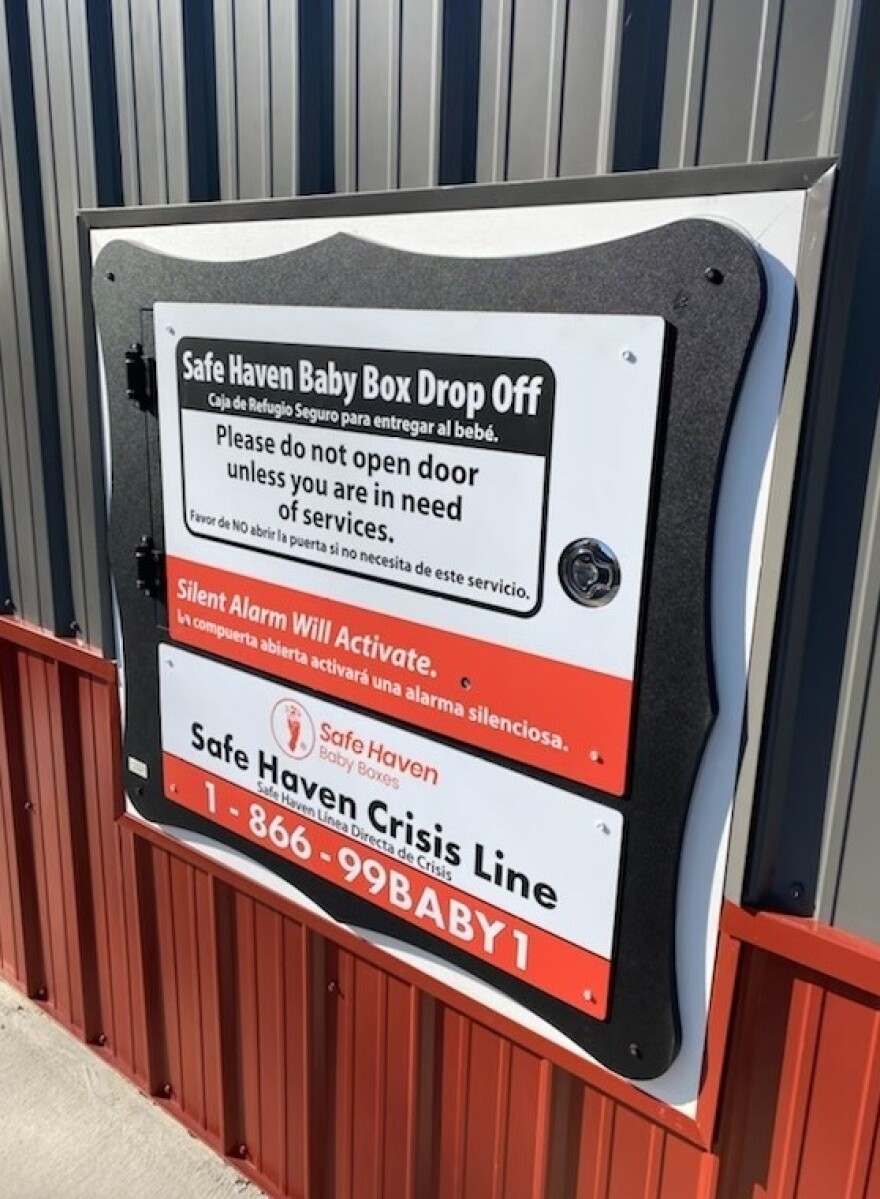A newborn was surrendered recently to Florida's only baby box, a device that lets people give up an unwanted infant anonymously. It was the first time anyone has used the baby box since organizers placed it at an Ocala fire station over two years ago.
"When we launched this box in Florida, I knew it wasn't going to be an if — it was going to be a matter of when," Monica Kelsey, the founder of Safe Haven Baby Boxes, told NPR. "This does not come as a surprise."
Kelsey, who says she was also abandoned as an infant, founded Safe Haven Baby Boxes in 2015. The program offers a way to anonymously surrender an infant to the authorities.
The organization launched the first baby box in the U.S. in Indiana in 2016, and the organization received its first surrendered newborn in 2017. There are now at least 134 baby boxes scattered across numerous fire stations and hospitals in the country, according to the organization.
There are plans to establish more baby boxes in Indiana, which already has 92 of them — the most of any state.
"It's really simple from a policy matter," Santa Clara University law professor Michelle Oberman told NPR's All Things Considered in August. "It doesn't require you to face hard questions about what we owe people most impacted by abortion bans."
The Ocala Fire Rescue received the surrendered newborn, the first to ever be surrendered in a baby box in Florida, within the last 10 days, Kelsey said. She declined to give an exact date to protect the infant's anonymity.
The baby boxes are touted as being safe, with temperature controls, safety incubators and alarms designed to contact authorities as soon as the outside door to the baby box is opened. Once the authorities arrive, the newborn is removed from the baby box's bassinet and immediately taken to receive medical attention, before then being placed for adoption, according to Kelsey.
Each location pays the organization $200 t0 $300 a year to cover maintenance and a yearly recertification.
Kelsey said her organization is in discussions with several other locations in Florida interested in launching similar baby box programs.
Baby boxes remain controversial
Baby boxes aren't a new invention. Kelsey became inspired to start her organization after she spotted one in South Africa, according to her organization's website. And in Europe, the practice has gone on for centuries: A convent or place of worship would set up rotating cribs, known as foundling wheels, where a child could be left.
And while advocates argue that baby boxes help save lives, critics say the practice creates a method for people to surrender children without the parent's consent.
While every U.S. state has some sort of legislation allowing infants to be surrendered to authorities, a United Nations committee called in 2012 for the practice to end. And while some countries are outlawing the practice altogether, others, like Italy, began introducing even more high-tech devices for surrendering children in 2007. There are still dozens of "cradles for life," or culle per la vita, in almost every region in Italy.
Another criticism lies in how infrequently infants are surrendered. In Texas, the number of abortions and live births far eclipses the 172 infants successfully surrendered under the state's safe haven law since 2009, according to The Texas Tribune. From 1999 to 2021, at least 4,505 infants were surrendered through safe haven laws nationwide, according to the most recent report from the National Safe Haven Alliance.
Copyright 2023 NPR. To see more, visit https://www.npr.org.




